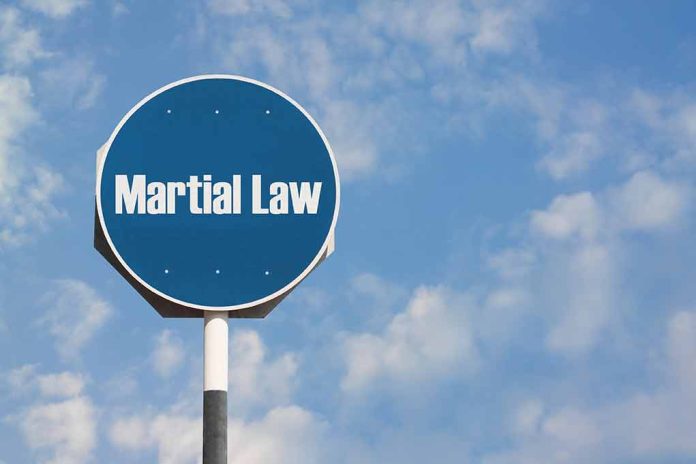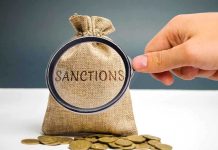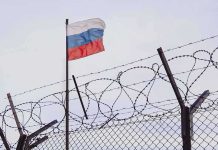
South Korea plunges into chaos as President Yoon Suk Yeol’s martial law declaration sparks nationwide protests and a constitutional crisis.
At a Glance
- President Yoon Suk Yeol declared martial law to combat “pro-North Korean anti-state forces.”
- South Korean parliament voted to block the martial law declaration.
- Violent clashes erupted between military personnel and protesters outside parliament.
- The US expressed grave concern over the situation.
- President Yoon’s popularity has declined amid recent scandals.
Martial Law Declaration and Parliamentary Rejection
In a shocking move, South Korean President Yoon Suk Yeol declared emergency martial law, citing the need to protect the country from North Korea’s communist forces and eliminate anti-state elements. The declaration was met with immediate resistance from both the public and lawmakers.
The South Korean parliament swiftly convened and voted to block the martial law declaration, with both ruling and opposition parties opposing the measure. This unprecedented rejection has created a constitutional crisis, as it remains unclear whether President Yoon will comply with the parliament’s decision.
South Korean MPs and people are blocked from entering the parliament building. https://t.co/KoWw2KsyLx pic.twitter.com/slNhZ5BrYy
— Clash Report (@clashreport) December 3, 2024
Protests and Clashes
The martial law declaration sparked widespread protests across South Korea, with demonstrators gathering outside the parliament building. Chants against martial law filled the air as tensions escalated between protesters and security forces.
“Democracy is strong here,” stated opposition member Hong Kiwon, who reportedly had to climb over a wall to enter parliament due to police blocking the entrance.
Videos circulating on social media showed chaotic scenes of military forces attempting to enter the parliament building before the vote, while opposition Democratic Party staff tried to block their entry. The situation quickly devolved into violent skirmishes between military personnel and demonstrators.
Political Crisis and International Concern
The martial law declaration has intensified scrutiny on President Yoon’s administration, which was already facing declining poll numbers and recent scandals. Even members of Yoon’s own party were reportedly shocked by the decision, with party leader Han Dong-hoon opposing the move.
The international community has also expressed concern over the developments in South Korea. The US State Department issued a statement emphasizing the “iron-clad” alliance between the United States and South Korea while expressing grave concern over the situation. Notably, the US was not informed in advance about the martial law declaration, further complicating diplomatic relations.
Uncertain Future
As the crisis unfolds, lawmakers have taken the extraordinary step of remaining in the Assembly Hall to prevent the president from potentially disbanding parliament. The South Korean military has stated it will maintain martial law until lifted by President Yoon, despite the National Assembly’s vote to block it.
Critics argue that President Yoon is more focused on political opponents than actual threats from North Korea. The last time martial law was imposed in South Korea was during the 1980s amid student unrest, making this current situation all the more alarming for many citizens.
As South Korea grapples with this constitutional crisis, the world watches closely to see how this delicate situation will be resolved. The coming days will be crucial in determining the future of South Korean democracy and the stability of the region.
Sources:
- South Korea lawmakers defy president and block martial law as crowds protest
- South Korea in crisis as clashes break out between civilians and military after President Yoon shockingly declares martial law
- South Korea parliament rejects president’s martial law declaration
- South Korean forces clash with crowds outside parliament after martial law declared







